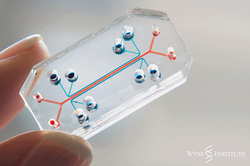Frank Njenga is a Consultant Psychiatrist in private practice in Nairobi, Kenya, where he has practiced for thirty years. He was the founder President of the African Association of Psychiatrists and Allied Professions (AAPAP). Dr Njenga was appointed by the President of Kenya to chair the (NACADA) - National Campaign Against Drug Abuse Authority Board which is the body that advices the Kenya Government on Drug and Alcohol policies. In addition to his medical practice, he is Founder Chair of the Institute of Education in Democracy (IED), an Africa wide election monitoring body, as well as active campaigner for Democracy in Africa. He is an author of many scientific papers, books and book chapters, including children's' books.
A father who was given a high-tech bionic hand after losing his arm in an accident six years ago yesterday claimed he can now tie his shoe laces again. Nigel Ackland, 53, was fitted with the Terminator-like carbon fibre mechanical hand which he can control with movements in his upper arm in November last year. The bebionic3 myoelectric (double corr) hand, which is also made from aluminium and alloy knuckles, moves like a real human limb by responding to Nigel's muscle twitches. Incredibly, the robotic arm is so sensitive it means Nigel can touch type on a computer keyboard, peel vegetables, and even dress himself for the first time in six years.

Combining microfabrication techniques with modern tissue engineering, lung-on-a-chip offers a new in vitro approach to drug screening by mimicking the complicated mechanical and biochemical behaviors of a human lung.



 RSS Feed
RSS Feed